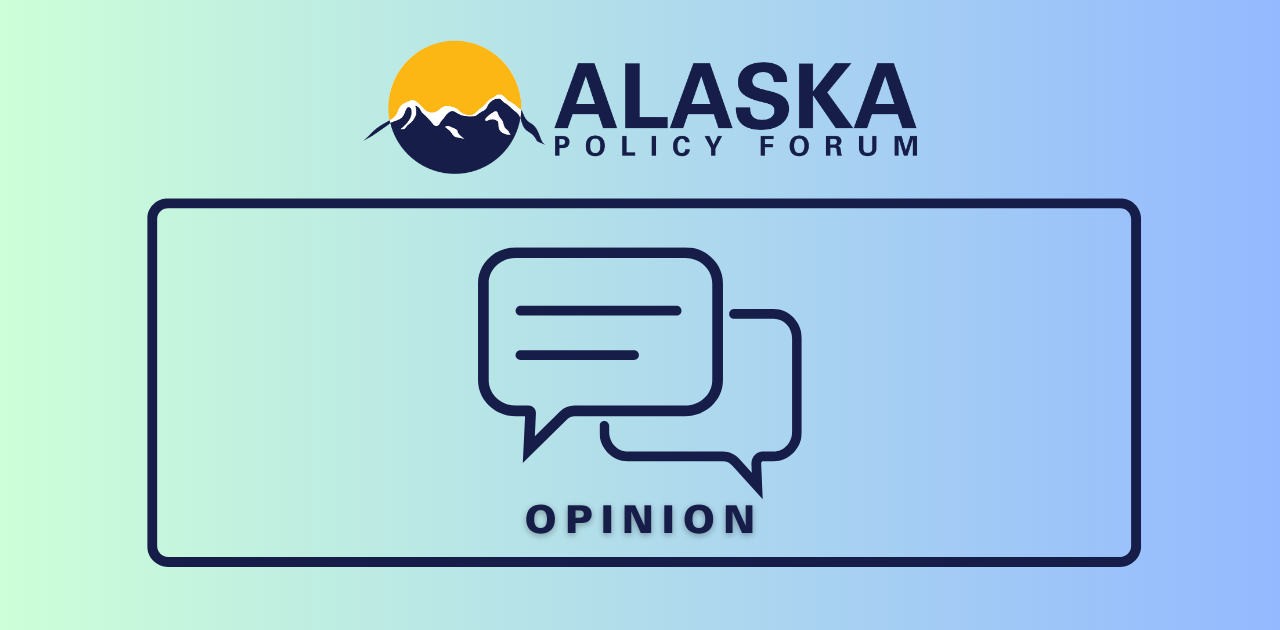This article was originally published on August 3, 2023, by Anchorage Daily News.
Alaska Is a Leader in Medicaid Waste—Here’s How We Change That
Like everywhere else in the United States, Alaska recently began reviewing the eligibility of current Medicaid enrollees after a three-year hiatus from its routine integrity procedures. And already, startling reports are coming out of Juneau: More than a third of Alaskans whose Medicaid eligibility was reviewed in May were found to be ineligible and were subsequently removed from the program.
Nearly 3,000 Alaskans being removed from Medicaid in one month, initially, sounds shocking. But when viewed alongside new research that finds Alaska’s improper payment rate tops 34 percent and is the third-highest in the nation, the news is less surprising.
A report from the Foundation for Government Accountability details the urgent need to rein in improper Medicaid payments, which cost taxpayers nearly $81 billion just last year. And ineligible individuals enrolled on Medicaid make up a significant share of those improper payments.
Alaska’s position as a leader in Medicaid waste should concern each of us. As Alaskans, we pride ourselves on a strong sense of duty and community, but we fail to protect the most vulnerable among us when we let waste, fraud, and abuse run rampant in our welfare programs. Medicaid was created to provide health coverage for the truly needy, including low-income pregnant women, children, the elderly, and those with disabilities. Yes, Medicaid eligibility has been expanded over time, but it was never intended to prop up able-bodied adults for any length of time, and certainly not individuals who fail to meet the program’s qualifications.
Medicaid enrollment has grown at an unsustainable pace, reaching 100 million enrollees nationwide earlier this year. And unfortunately, this rapid growth has occurred during a time with few if any safeguards to ensure the program’s integrity. In 2021, more than one in five dollars spent on Medicaid were improper, resulting in billions of taxpayer dollars being diverted away from the truly needy and other state priorities and into the pockets of health insurers and others.
In 2016, a bipartisan effort led by then-Senate President Pete Kelly to combat waste, fraud, and abuse in Alaskan Medicaid successfully passed through the state legislature. The Stop the Scam welfare bill directed the state to employ proven practices, like the use of e-verify software, to monitor welfare beneficiaries’ continued eligibility to ensure that only those who qualify for welfare programs continue to receive benefits. Simple cross-checks of existing databases, for example, can confirm enrollees’ income, state residency, and employment status—which often determine welfare eligibility. And an increased focus on prosecuting those who commit fraud against the system not only provides justice for the public who has been swindled out of billions, but also serves as a deterrent for other would-be fraudsters.
The COVID-19 pandemic, however, was no friend to our—or any state’s—efforts to ensure Medicaid integrity. Over the last three years, states were barred from removing most individuals from Medicaid, even if they no longer met the statutory qualifications to receive benefits. The federal government used COVID-19 relief money as the hook to sink our Medicaid programs into disarray. The most basic integrity measure of reviewing enrollees’ eligibility was put on pause, and, naturally, Medicaid enrollment skyrocketed, including the enrollment of ineligible individuals.
Medicaid redeterminations—as they are called—have always been a routine, yearly procedure. Those who continue to meet the program’s eligibility qualifications—which have not changed—are reenrolled, while those who do not are removed. It’s simple. And while the tidal wave of ineligible individuals being removed from the state’s program now that Medicaid redeterminations have restarted is startling, it must be viewed as a measure of how drastically Medicaid has failed to prioritize the truly needy.
Despite the urgent need to restore Medicaid integrity—and even states’ willingness to do so—the Biden administration is now attempting to institute new roadblocks to states’ efforts to protect Medicaid for the truly needy. Newly-proposed rules would complicate states’ Medicaid redetermination procedures and make it more difficult to remove ineligible individuals once again. These must be fought with equal determination to uphold welfare for the truly needy. We must employ additional safeguards that protect against waste, fraud, and abuse.
Alaska began this work in 2016, and now our work must continue.
Former members of the Alaska House of Representatives Health & Social Services Committee:
Wes Keller (2009-2014), Pete Higgins (2013-2014), Liz Vazquez (2015-2016), Sharon Jackson (2019-2020), Dave Talerico (2015-2016)
